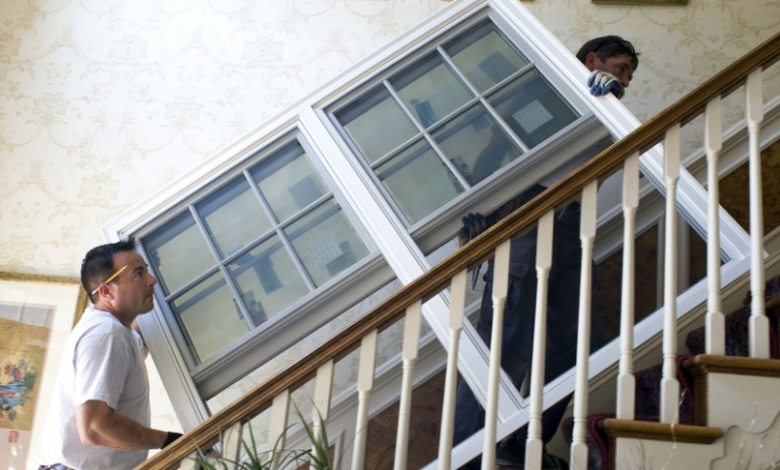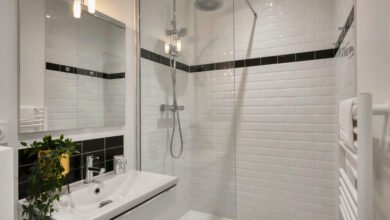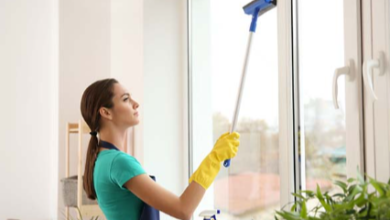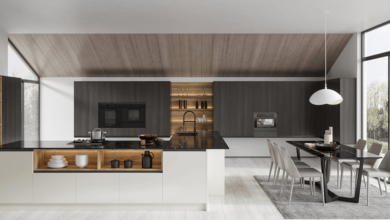Home Window Replacement That Pays Off in Energy Savings

Replacing windows is one of the smartest home improvement decisions a homeowner can make, especially when considering long-term energy savings. Outdated or poorly sealed windows can lead to substantial energy loss, driving up utility bills and reducing indoor comfort. A well-planned home window replacement project not only boosts the appearance and value of your property but also significantly improves energy efficiency.
In this article, we’ll explore why energy-efficient windows matter, the signs it’s time for a replacement, and how home window replacement can lead to noticeable savings.
Why Energy Efficiency Matters in Window Design
The Role of Windows in Home Energy Loss
Windows play a major role in how much energy a home uses for heating and cooling. Older windows, especially those with single panes or deteriorating frames, allow for excessive heat exchange. In the summer, they let heat in, forcing your air conditioning to work harder. In winter, warm indoor air escapes, and cold drafts creep in, pushing your heating system to overperform.
According to studies, windows account for 25–30% of residential heating and cooling energy use. That’s a significant figure that makes window performance a key factor in home efficiency.
How Modern Windows Save Energy
Modern window technology offers multiple solutions to reduce energy waste:
- Double or triple-pane glass with insulating gas layers minimizes heat transfer.
- Low-emissivity (Low-E) coatings reflect heat and block UV rays.
- Improved frame materials, such as vinyl, fiberglass, or composite, provide better insulation than older wood or aluminum frames.
- Tight seals and weather stripping prevent air leakage.
All these innovations work together to create a thermal barrier between your indoor space and the outside world.
See also: Navigating the Market: How a Buyers Agent Can Transform Your Home Purchase Experience
Signs It’s Time for Home Window Replacement
Rising Energy Bills
One of the clearest signs that your windows are failing is a noticeable increase in your heating or cooling costs. If your HVAC system is working overtime without any changes in your habits, inefficient windows may be the culprit.
Drafts and Cold Spots
Feeling a draft even when windows are closed is a red flag. Air leaks are not just uncomfortable—they are costly. Drafty windows allow outdoor air to enter and conditioned air to escape, forcing your systems to compensate.
Condensation Between Panes
If you see fog or moisture trapped between layers of glass, it indicates a broken seal. A compromised seal eliminates the insulating gas between panes, rendering the window ineffective in controlling temperature.
Difficulty Operating or Locking
Warped or deteriorated window frames often make it hard to open or close windows properly. If they don’t close tightly, air can leak in or out, reducing energy efficiency.
How Home Window Replacement Saves Money
Lower Heating and Cooling Costs
Energy-efficient replacement windows can cut energy bills by 12–25%, depending on your home’s location, climate, and existing window conditions. That adds up to hundreds of dollars saved each year—meaning the investment in new windows begins to pay for itself over time.
Reduced Wear on HVAC Systems
When your home is properly insulated, your heating and cooling units don’t have to work as hard to maintain the desired indoor temperature. This reduced strain can extend the life of your HVAC equipment and delay the need for expensive repairs or replacements.
Increased Comfort Year-Round
Replacing your windows doesn’t just help your wallet—it makes your home more livable. Consistent indoor temperatures, fewer drafts, and reduced glare from the sun all contribute to better day-to-day comfort.
Choosing the Right Replacement Windows
Consider Energy Performance Ratings
When selecting new windows, always check the following ratings:
- U-Factor: Measures how well a window prevents heat from escaping. Lower is better.
- Solar Heat Gain Coefficient (SHGC): Measures how much solar radiation enters through the window. A lower number means better heat resistance.
- Visible Transmittance (VT): Indicates how much natural light the window lets in. Higher is better for daylighting.
These ratings, often found on window labels, give you a clear sense of performance.
Frame and Glass Options
Frame material and glazing type are important for both durability and efficiency. Popular energy-efficient frame materials include:
- Vinyl: Low-maintenance and affordable with good insulation.
- Fiberglass: Durable and energy-efficient, great for extreme climates.
- Composite: Combines materials for high performance and strength.
For glass, consider double or triple glazing, Low-E coatings, and gas fills like argon or krypton for superior thermal performance.
Planning Your Home Window Replacement Project
Determine Your Budget
Costs vary based on window size, material, and features. It’s important to weigh initial expenses against the long-term energy savings and comfort benefits. Consider prioritizing rooms where temperature issues are most noticeable.
Hire Reputable Professionals
A poorly installed window can negate all the benefits of energy-efficient materials. Always choose experienced contractors known for precision and quality. Look for companies with good reviews, proper licensing, and insurance.
Explore Incentives and Rebates
Many regions offer tax credits, rebates, or incentives for upgrading to energy-efficient windows. These programs can significantly offset installation costs and improve your return on investment.
Long-Term Benefits of Energy-Efficient Windows
Increased Home Value
Energy-efficient upgrades are attractive to potential buyers. Home window replacement enhances curb appeal and boosts resale value, especially when new owners know they’ll enjoy lower utility bills.
Eco-Friendly Living
Lower energy usage means a reduced carbon footprint. By minimizing your reliance on heating and cooling systems, you help preserve natural resources and promote sustainability.
Enhanced Noise Reduction and Security
Many modern windows offer improved soundproofing and stronger locks, adding both peace and safety to your home environment.
Conclusion:
A home window replacement project isn’t just about looks—it’s a smart strategy for lowering energy bills, improving comfort, and increasing home value. Whether you’re dealing with drafty windows, outdated designs, or rising utility costs, replacing your windows can bring tangible and lasting benefits.




